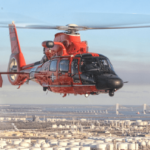ADT Worldwide has created an industry team including URS Corp. [URS] and Andy Frain Services to offer the air cargo community a comprehensive solution to meet the 100 percent cargo screening mandate being implemented by the Transportation Security Administration (TSA), a company official says. The team will offer freight forwarders and anyone else requiring services to screen air cargo bound for passenger aircraft for explosives everything from design and construction, the purchase and installation of screening technology, maintenance and support,…
Contract Updates
R&M Government Services (Las Cruces, New Mexico) – $23,894,784
R&M Government Services,* Las Cruces, New Mexico, has been awarded a maximum $23,894,784 firm-fixed-price, indefinite-quantity contract for battery compartments. This was a sole-source acquisition using justification 10 U.S. Code 3204 (a)(1), as stated in the Federal Acquisition Regulation 6.302-1. This…
L3Harris Technologies Inc. (Clifton, New Jersey) – $9,571,947
L3Harris Technologies Inc., Clifton, New Jersey, is being awarded $9,571,947 for a firm-fixed-price contract for the procurement of 74 radio frequency amplifiers in support of Navy F/A-18E/F/G aircraft. The contract does not include an option provision. All work will be…
Sikorsky Aircraft Corp. a Lockheed Martin Co. (Stratford, Connecticut) – $21,600,000
Sikorsky Aircraft Corp., a Lockheed Martin Co., Stratford, Connecticut, is awarded a not-to-exceed $21,600,000 cost reimbursable undefinitized order (N0001926F1016) against a previously issued basic ordering agreement (N0001923G0002). This order provides for instantaneous access to 105% Transient Engine Torque test and…
Amentum Mitie Pacific LLC (Chantilly, Virginia) – $85,236,794
Amentum Mitie Pacific LLC, Chantilly, Virginia, is awarded an $85,236,794 fixed-price-award-fee, indefinite-delivery/indefinite-quantity contract for base operating support services at Navy Support Facility, Diego Garcia. Work will be performed at Diego Garcia, British Indian Ocean Territory, and is expected to be…













